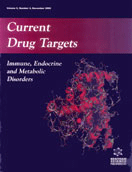Abstract
Human immunodeficiency virus (HIV) infection is characterized by a severe depletion of both CD4+ and CD8+ T cells, representing the result of virus-mediated killing of infected lymphocytes and the programmed cell death (apoptosis) of the uninfected bystander cells. Since only a small fraction of T lymphocytes are depleted by viral killing, apoptosis represents one of the most important mechanism of T cell death during HIV infection. Several apoptotic pathways can be triggered by the different stimuli: persistent T lymphocyte activation altered death receptor (Fas, TNF-R, TRAIL R1-R2) membrane expression viral proteins as well as gp120, Tat, and Nef host factors such as the unbalance of cytokine synthesis by lymphocyte. Nevertheless, new evidences have demonstrated that the persistent HIV induced T cell activation and proliferation cause a cell cycle dysregulation resulting in a 5-fold increase in apoptotic cells. This perturbation represents a link between HIV infection, T cell activation, accelerate d cell turnover and increased apoptosis and may thus represent a new therapeutic target. In fact, Interleukin-2 administration reverts such a cell cycle dysregulation and reduces activation induced T cell apoptosis. Herein we analyze the main HIV-related mechanisms of host cell death, that are dysregulation of the cell cycle and apoptosis induction of T lymphocytes. Finally, the role of cytokines at the site of infection and their association with apoptosis will be discussed to get insights into the immunological perturbations accounting for an accelerated disease progression. Current therapeutic approaches and strategies, like HAART and recombinant cytokines, that may, successfully, improve the immune-system dysregulation, are also discussed
Keywords: human immunodeficiency virus(hiv), haart, recombinant cytokines, apoptosis, th1 cytokines, interferon(inf)
 15
15


















